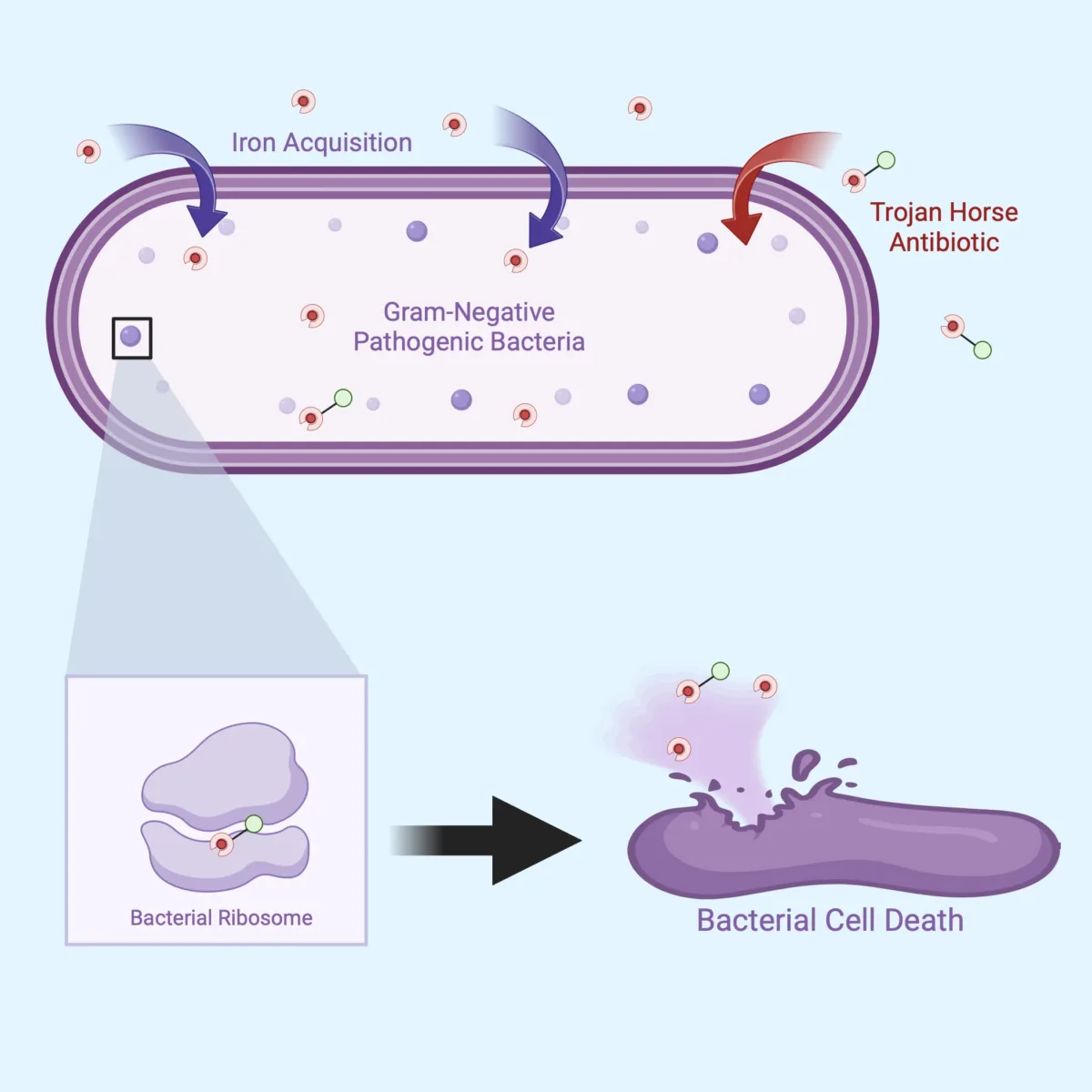Trojan Horse Antibiotics to Combat Gram-Negative Bacteria

Bacteria need iron to survive but cannot make it themselves. During an infection, bacteria steal iron from their hosts using molecules known as siderophores. By attaching an antibiotic to a siderophore, we can trick bacteria into killing themselves in their attempt to sequester much-needed nutrients. This Trojan-horse strategy has led to one approved drug, cefiderocol, but has a major limitation: very few classes of antibiotics are suitable for attachment to siderophores. Support from the Bachrach family has enabled Professor Ian Seiple and his team at University of California, San Francisco (UCSF) to expand the pool of antibiotics that can be used as Trojan horses. These researchers have discovered methods to attach siderophores to antibiotics that were previously thought to be incompatible with such modifications due to their deep binding pockets in their bacterial targets. This work holds promise to develop new treatments for emerging bacterial infections, especially those caused by drug-resistant Gram-negative bacteria.

